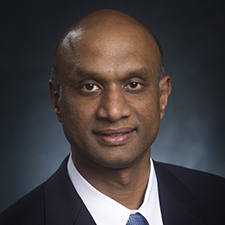The Clinical Cardiac Electrophysiology (CCEP) Training Program is a two-year ACGME-accredited clinical fellowship which involves clinical rotations at the University of Alabama Hospital in Birmingham (UH) and the Birmingham VA Medical Center (VA). All Cardiac Electrophysiology Fellows at UAB are typically at PGY 7-8 level of training.
The primary mission of the CCEP program is to produce physicians who are clinically competent in the broad field of Cardiac Electrophysiology, highly effective in a variety of clinical settings and possess habits of life-long learning to allow for continued growth in knowledge, skills and other aspects of a professional career in CCEP. Our comprehensive teaching curriculum features multiple conferences such as intracardiac and device tracings conference, ECG conference, Journal club, and clinical-cum-basic science research conference, and simulation is incorporated into the curriculum.
Fellows participate in a wide variety and large number of clinical cases at UAB. The CCEP fellow is trained in all procedures required for competency in clinical electrophysiology and easily exceeds the revised requirements for training. Emphasis on complex ablation is a unique feature of our program. Fellows are highly trained in ablation of ventricular arrhythmias, atrial fibrillation and complex atrial flutters. However, the program also exposes the CCEP fellow to common procedures such as diagnostic EP studies, ablation of AVNRT, AVRT, atrial tachycardia and typical atrial flutter, evaluation of syncope, AV block, sinus node dysfunction, and cardiac arrest.
Fellows gain exposure to all types of device implantations - new implantations, generator replacements and system revisions - including pacemakers, implantable cardiac defibrillators, cardiac resynchronization therapy devices and implantable loop recorders. UAB is a regional referral center for lead extraction and the CCEP fellow receives a vast experience in lead extraction. The CCEP fellow also gains exposure to epicardial ablation, left atrial appendage closure and management of arrhythmias in patients with congenital heart disease.
Fellows gain broad exposure in the outpatient setting, including device follow up and troubleshooting, inherited arrhythmia syndromes, syncope and cardiac arrest. Opportunities for research and scholarly activities abound. The EP lab database and device remote monitoring database are sources for clinical research, while the cardiac rhythm management lab (CRML) offers an excellent avenue for basic research.
Apply to Fellowship
 Harish Doppalapudi, MD
Harish Doppalapudi, MD
Fellowship Director